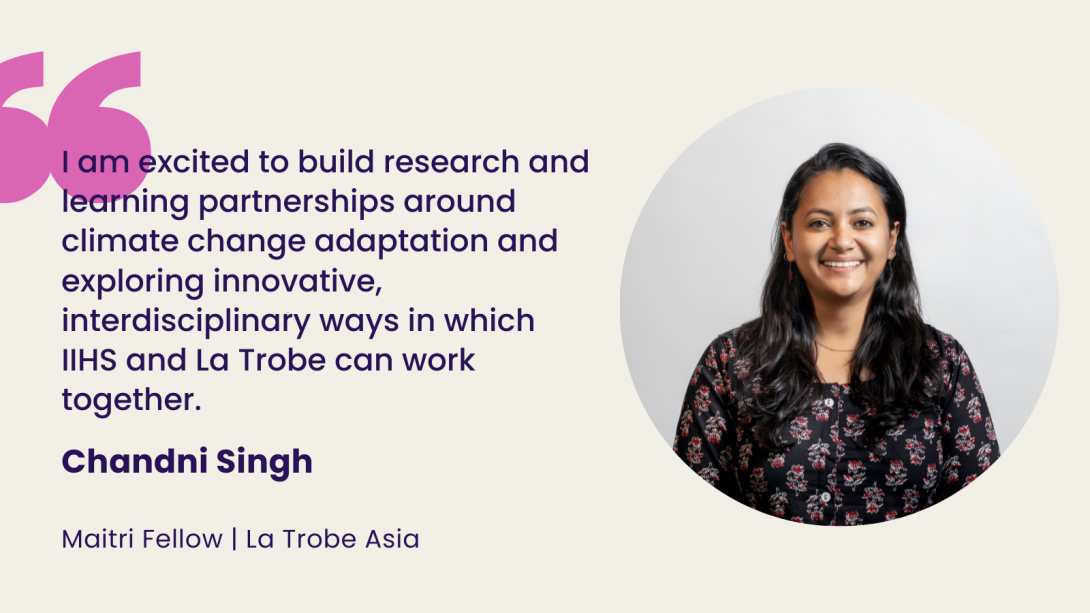
Which foreign or trade policy issue are you most interested in tackling?
Climate change is the most pressing issue of our times, with implications for domestic and international finance, economic growth and local livelihoods, and the functioning and services of ecosystems. By focussing on how we can adapt to climate change, I am interested in pushing knowledge frontiers on emerging topics of transformational adaptation, equitable and effective adaptation, and pre-empting poor or maladaptation. I am also interested in exploring how creative pedagogical tools are being used to train the next generation of climate practitioners and researchers, and this fellowship is part of that endeavour.
How is your research going to promote policy translation and public discourse in Australia and/or India?
My fellowship focusses on moving ‘From shared risks to collaborative climate change adaptation: fostering research for policy impact’. At present, India and Australia are primarily pursuing adaptation in a unilateral manner, drawing on domestic and regional adaptation researchers and networks. My research will aim to foster cutting-edge, synergistic adaptation between the countries by bringing together key adaptation experts to share and compare adaptation approaches, innovations and lessons, identify potential intersections in research, policy and practice, and cultivate impactful networks. Given ongoing efforts in La Trobe in Australia, these efforts will contribute to understanding how to reduce each countries’ risks, strengthen linkages and regional resilience, and advance world-leading adaptation.
What are you most excited for during your trip to Australia?
I am excited to build research and learning partnerships around climate change adaptation and exploring innovative, interdisciplinary ways in which IIHS and La Trobe can work together. I am also looking forward to learning about how two topics close to my interest – adapting to extreme heat, and climate migration – are understood in the city of Melbourne. I’ve also read a lot about Melbourne’s experiments in urban farming and would love to visit some of them.
